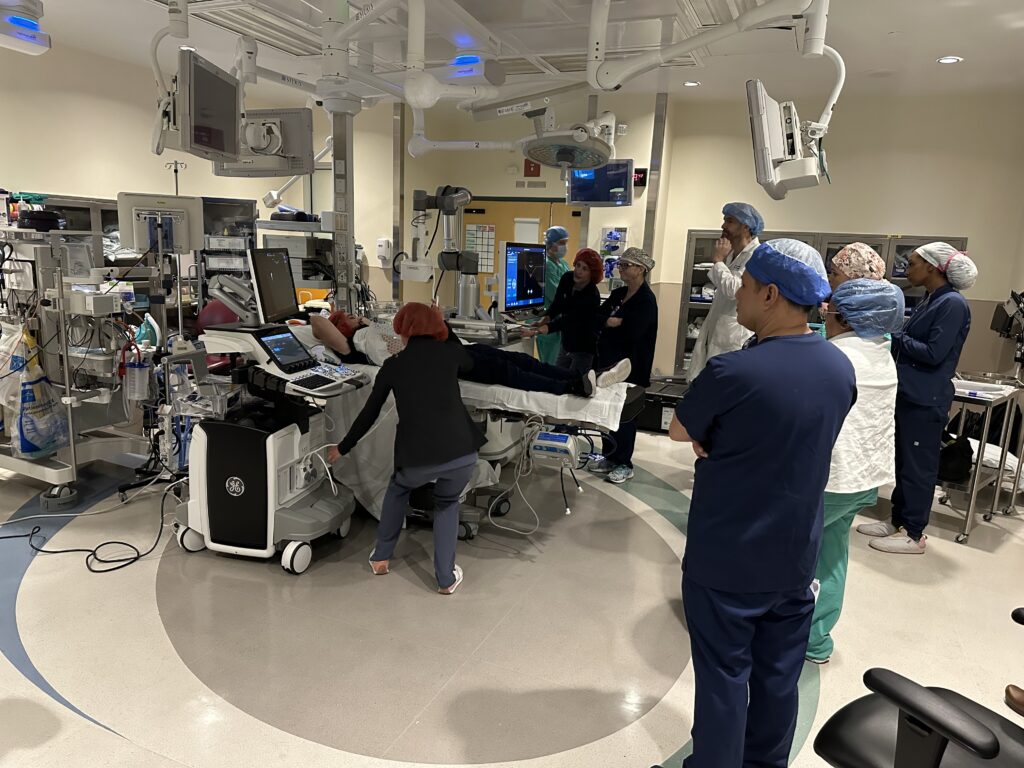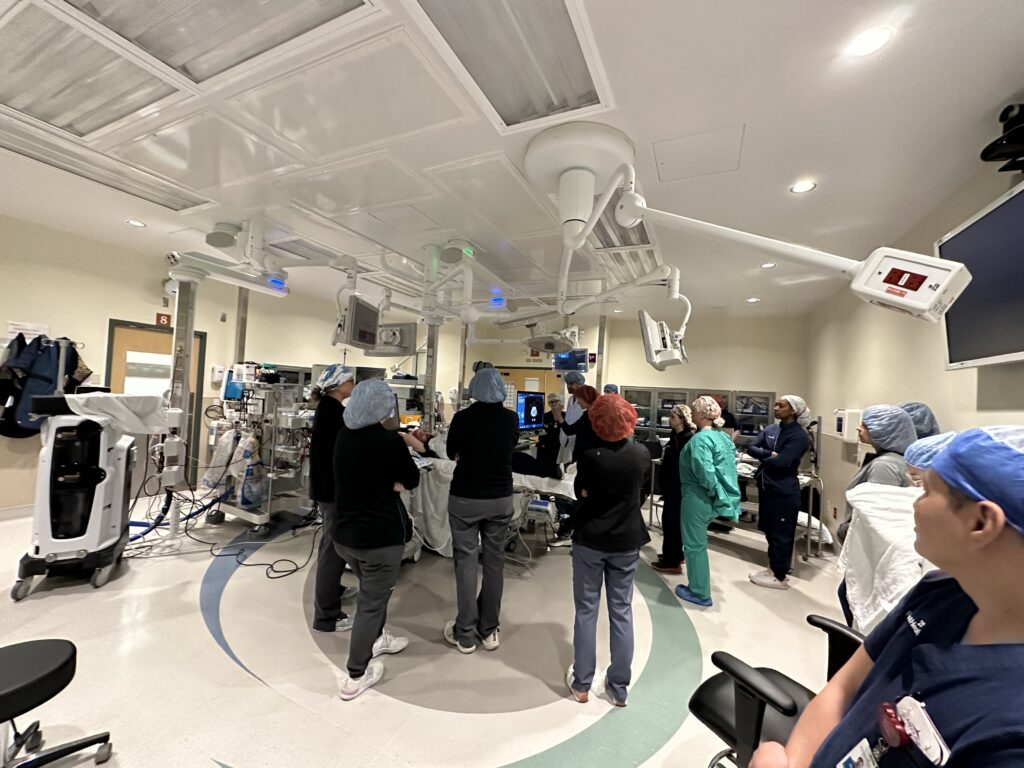provided by ADVENTHEALTH
CELEBRATION, FLA. — Kirsten James never thought she’d be at risk for cancer. Working out six days a week and following a strict diet, she was the picture of health.
“I was so healthy that I never even went to the doctor,” she said.
That changed in 2022. Bothered by gastrointestinal symptoms that she’d attributed to the lingering effects of childbirth, she consulted a physician and was diagnosed with Stage 4 anal cancer. The cancer had metastasized to her liver, where scans detected more than 30 tumors.
James, a former software engineer for the space-shuttle program who lives in Rockledge with her husband and two teenage sons, was determined to fight the disease. After multiple treatments including radiation, ablation, chemotherapy and immunotherapy, her physicians told her there was nothing else they could do.
That’s when she discovered a brand-new treatment option called histotripsy was being offered for liver-tumor patients at AdventHealth Celebration.
“Histotripsy is focused ultrasound that uses gases in the tissue to create a ‘bubble cloud’ that mechanically destroys tissue,” said AdventHealth hepatobiliary surgeon Dr. Andrew Guzowski, who performed the procedure on James. “It’s very focusable, and causes full destruction of the tumor, while not harming surrounding tissue.”
The treatment zone hit by the ultrasound is about the size of a grain of rice, Guzowski said. He programs a surgical robot to hit all areas of the tumor. The average time to destroy a whole tumor is about 23 minutes, he said.
“Minimally invasive procedures are the ideal treatment for any diagnosis, and when we can destroy a tumor in the liver without any incisions, without any invasion, patients are appreciative and have done very well,” Guzowski said.
“Liver resections are a weeklong hospital stay,” he added. “Histotripsy patients will stay in observation and go home the next day.”
After being turned away by other health systems, James is glad to have another option at AdventHealth.
“My boys are my everything; everything I do is for them,” said James, 49, of her decision to continue researching treatment options. “I need to be there for their graduations.”

